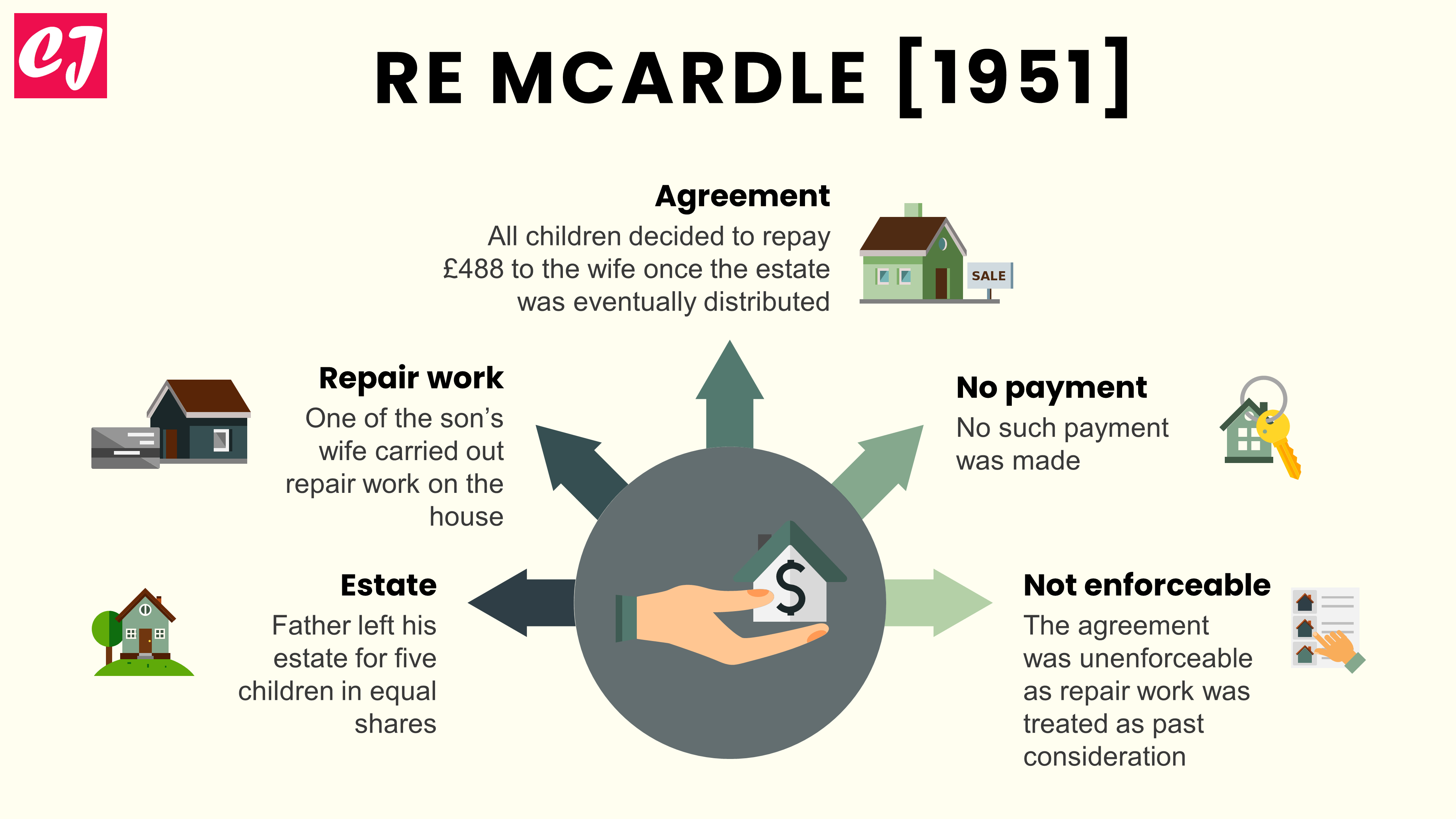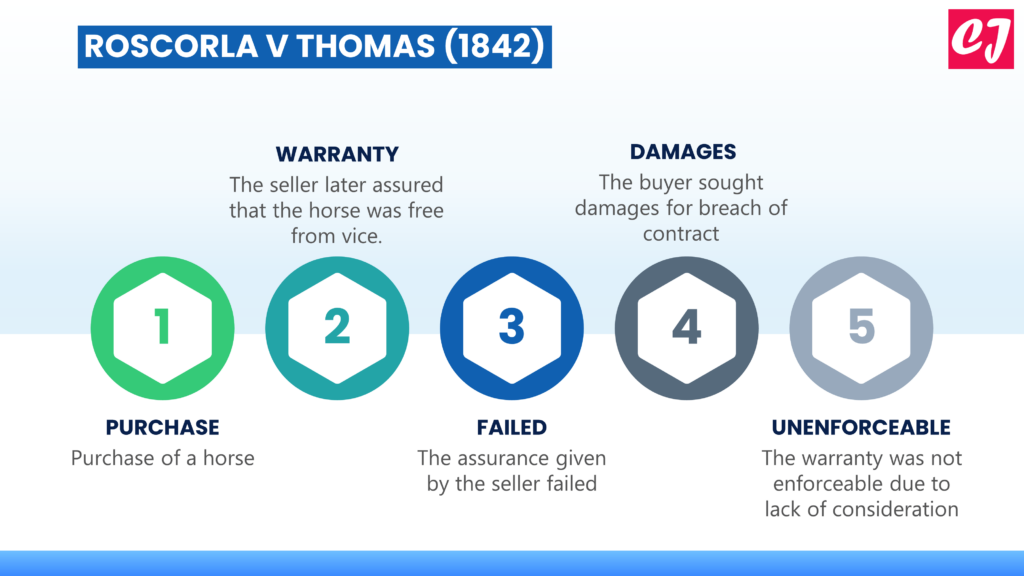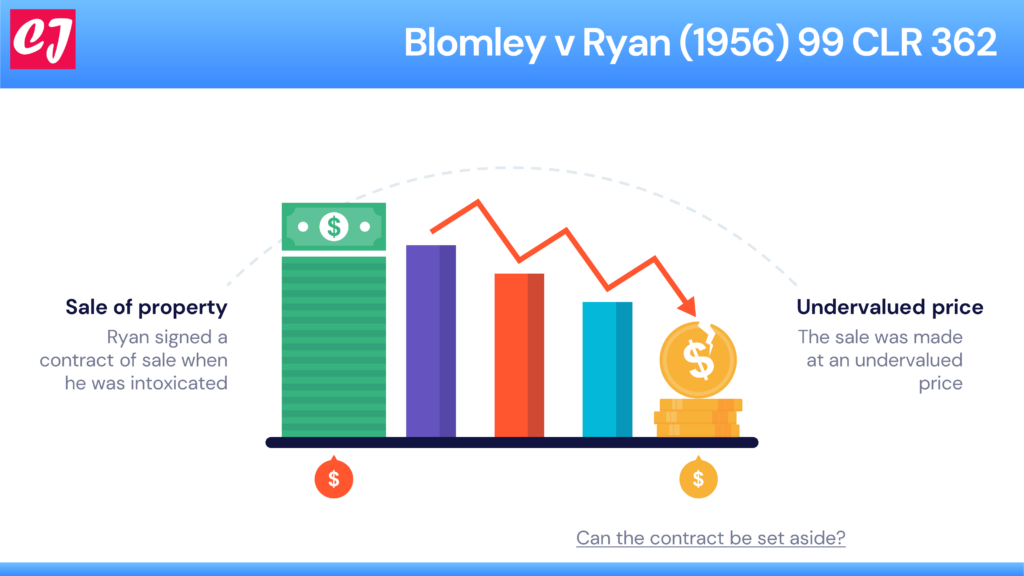
Re McArdle [1951]: A Quick Summary
Case name & citation: Re McArdle [1951] Ch 669; [1951] 1 All ER 905
Court and jurisdiction: Court of Appeal; England and Wales
Area of law: Consideration – past consideration
What is the case about?
This case dealt with the issue of past consideration and whether or not a wife was entitled to reimbursement of expenses incurred on the repair of a property in which her husband and his siblings were beneficiaries.
Case facts (Re McArdle)
The case involved Majorie McArdle and her husband’s siblings. Majorie McArdle performed work refurbishing a house that was part of the estate of her husband’s father, who had passed away. The house was left to the husband’s mother for life and then on trust for Majorie’s husband and his four siblings.
After the repairing work was completed by Majorie, all the brothers and sisters signed a document agreeing that in consideration for her carrying out the repair work, the executors would pay her £480 from the proceeds of the house’s sale. This was to contribute financially towards the costs incurred for the house refurbishment.
However, no such payment was made to her.
Judgment of the Court in Re McArdle
The Court decided that the promise to make the payment was not binding. The reason was that the promise to make the payment came after the consideration (Majorie’s repair work) had already been performed. Thus, it wasn’t supported by valid consideration.
Quote from the case
“As the work had in fact all been done and nothing remained to be done by Mrs. Marjorie McArdle at all, the consideration was wholly past consideration, and, therefore, the beneficiaries’ agreement for the repayment to her of the £488 out of the estate was nudum pactum, a promise with no consideration to support it. That being so, it is impossible for her to rely upon this document as constituting an equitable assignment for valuable consideration.”
(As per Jenkins LJ at p 678)
Past consideration
The decision in Re McArdle was based on the concept of past consideration.
Past consideration is generally not considered valid in contract law because, for a contract to be legally enforceable, consideration should flow concurrently with or after the promise. In this case, the promise of payment was made after the work was completed, making it unenforceable due to “past consideration.”
References:
- https://www.e-lawresources.co.uk/Re-McArdle.php
- https://www.london.ac.uk/sites/default/files/study-guides/contract-law-study-guide.pdf
- https://repository.londonmet.ac.uk/7011/1/Barrie-Guide%20to%20Contract%20%20VOLUME%20ONE%202021-2022.pdf
You might also like:
More from contract law:

